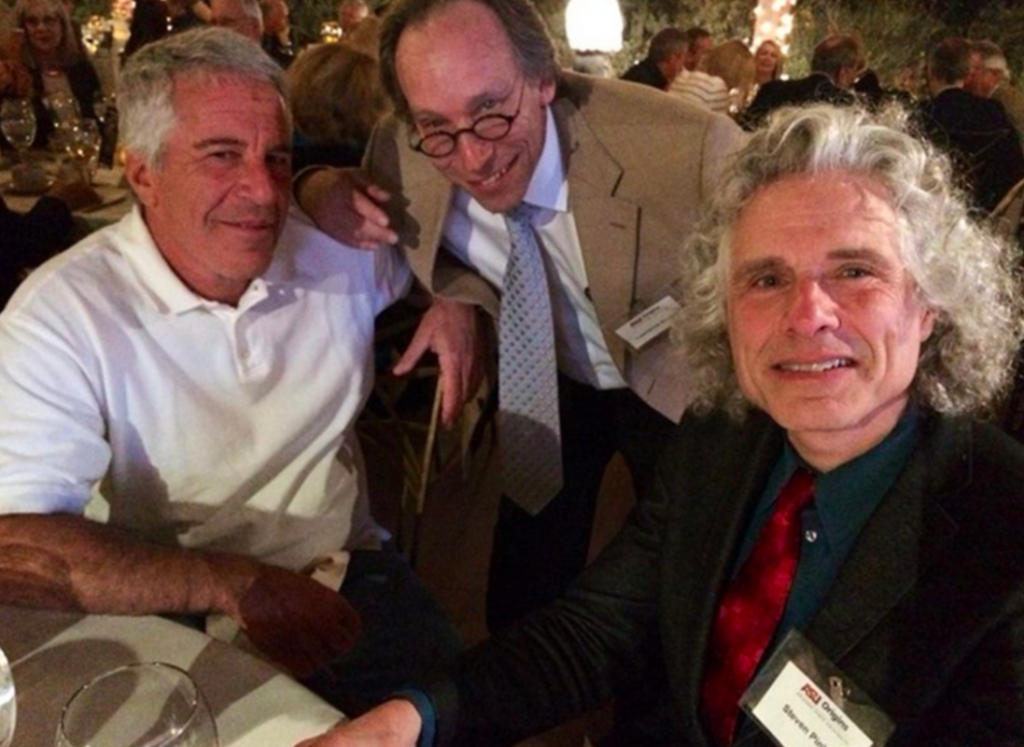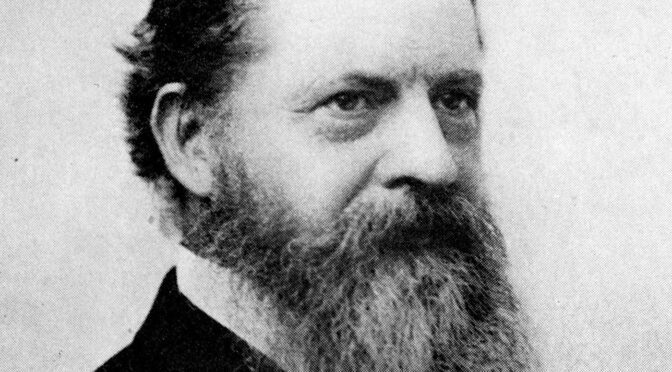I can’t ignore this any longer. The problem with our nation is both simpler and more complex than it appears. But the first issue to deal with is the divisive tone and content of political speech. Our neighbors and friends have become, if the politicos are to be believed, our enemies. People who I used to call friends, have cooled off in their ardor because somehow they think I have fallen away from a message they are comfortable with. And they are told that I am the enemy.
Is it because I have become less of a Christian, or that I have abandoned the principles of democracy? No, definitely not. I hold the same trust in our way of government that I did before the current political climate. That is, not absolute trust, but conditional on its behavior. Am I less of a Christian than I was before? Certainly not. I can see real growth and movement toward becoming like Christ. Do I struggle? Well, yes, but then that is the burden of every person. Do I feel that I have abandoned or compromised my Christian principles in order to ally with the United States? No. I don’t trust government, any government that has its own interests or the interests of the 1% in mind. I do trust some officials, but not always and not for every issue. Am I patriotic? Of course, but not the sort of patriotism that wraps its self interest in the flag, or tries to associate the United States with some vision of Christ’s kingdom. Doing that defames the flag, and pollutes the Christ who suffered and died to deliver us from the tyranny we see so often in modern politics. Do I love my country? Yes, of course. But I am not so simpleminded as to justify its mistakes and excesses to imperil my neighbors who are different from me. Do I wish things were better in the US? Yes, I think we all do.
I do not like or accept the names that some call others. That just follows the modern McCarthyism. Do I think I should be loyal to our government? No, not a chance. If they do their jobs as they should I am happy, if they sell their services to the highest bidder, I am not happy. And it is not my neighbors and friends that I am angry about. I am angry at the politicians who believe that they should do whatever is in their own interest, whether that is keeping party solidarity in order to get elected again, or ignoring the glaring facts that they must ignore if they are to say and do the things they do. (Anybody interested in seeing the Ted Cruz video where the high school students ask him about gun control?) And I ask, how can they say those things? Is there a chance that I have gotten it so wrong? And I answer after some further exploration, no. They are either sincerely deceived, or deceiving others for their own interest. Is it loyalty to the principles of good government that makes them do this? No, that can’t be so, because good government relies on good data and a firm grasp on reality.
Yes, I get it that there are different perspectives on the facts. But, when the facts aren’t changing and the oddball perspective remains against reasonable doubt of that interpretation, I begin to call that perspective into question. And if I am the outlier in this evaluation, I beg for better data and a better explanation. But it has become common for people to persist spouting ignorant and uninformed opinions and trouble others over their incredulity. That makes me angry. When elected political officials do this, I am angry.
You remember the 1st Amendment to the Constitution? There’s a bit in there about not abridging the freedom of speech. I agree with that. But in the context, and I am originalist in this respect, the intention of that amendment was to protect free “political” speech, that is, to be able to criticize the government. So, when I hear the undisciplined and dangerous speech of an elected official, I am angry. The Bill of Rights is there to protect the people, not the elected officials in their official capacity. It is meant to keep autocracy from becoming the norm when it sprouts its evil head.
Some people believe any rhetoric is OK when it gets the job done, but the loss of truthful speech defines our readiness to accept corruption. When that rhetoric goes unchallenged it becomes the enemy of democracy. Let me explain. Immanuel Kant told us that when somebody lies to us, we are made an unwitting tool in somebody else’s chain of events. We lose our freedom. I think he’s correct here, and when an elected official believes it is OK to lie, they believe it is OK to use you and me in a plan that we would not adopt if we knew the truth. So, part of our problem in the modern world is that we have failed to be truth detectors, or we have so misunderstood our political purpose as to justify the divisiveness of elected officials. That’s not the kind of government I want. I know they are telling me that it is for my own good that they do what they do, but how am I supposed to believe them when I can see the consequences of their behavior right before my eyes.
And the thing I am angry about is not my neighbors and friends, though some of them are angry at me. But it seems that they have been lied to. They also haven’t bothered to dig hard enough to find the truth. I’m sorry for that. All the divisive rhetoric going around by officials of the US government and its allies (Russians responsible for election tampering), make it hard to breathe.
But because of this rhetoric and their behavior we now have to accept making our planet filthier and more dangerous for our children in the name of monied interests. We have to accept that Mexicans, Muslims, etc. are dangerous people, despite the fact that they are no more dangerous than anybody else, (well, maybe they are less dangerous than the white supremacists who are feeling emboldened to shoot people in Walmart.) We have to accept that LGBTQ etc. people deserve fewer rights as citizens to be unmolested in their lives than “straight” people, even while the “straight” people driving this divisiveness are often far more immoral than those they deplore, but because they have money and hold the reigns of power, are often free of the consequences for behavior that persistently puts other people in prison, sometimes for life.
So, those who are trying to divide the poor from the black and brown people, the straight from gay, the rich from poor are not doing Christ’s business. (Matthew 12:30, Luke 11:23) If your issue is so important then why is there little to nothing about it in the Scriptures? I thought the Scriptures were supposed to be the Christian’s arbiter of faith and practice.
So, now, why are my friends cooling off in their friendship? Is it because I am less Christian, or less patriotic? No, my first allegiance is to Christ and his kingdom. And my participation in this country’s politics is a subsidiary allegiance, one that if it conflicts with Christ, I happily abandon it, or even protest.
So what is it that my friends don’t like? I get it that they are conflicted between their Christian allegiance and allegiance to the state. Therefore, I guess that they can’t happily ally themselves with me. I offer something else than the often twisted divisive rhetoric of many of our elected officials. I offer my person in Christ, gathering all that I can into Christ. Are not the citizens and immigrants of whatever stripe people whom God loves? Of course they are. So my argument is not with them. My argument is with the divisive rhetoric and the elected officials who are pushing it.
I have made mistakes. I have been angry at poorly developed opinions, all the while incredulous that people could hold them. I am not always right, though I am right about a few things.
1. Stop using the labels right and left. They mean nothing these days and are only used to attack a viewpoint or policy. No effort is spent here by those who use those words to have a conversation.
2. The labels liberal and conservative are used as weapons, and dishonest ones at that. If you declare that you are a conservative, how am I supposed to know who you are aligning yourself with. Conservatives are a poorly defined group that is at once the William F. Buckley Jr., the KKK, John Stossel, white supremacists, the Koch enterprises, Newt Gingerich, Donald Trump, or fiscally responsible government. Liberals have the same problem with self declaration. If you declare you are a liberal, am I supposed to believe you are a socialist, communist, like Jimmy Carter or Barack Obama, want healthcare as a human right or want Social Security to be continued in public hands?
3. If you are going to claim that you are speaking the truth, be prepared to actually speak the truth by doing your research, not like the contemporary flat-earthers who haven’t got a snowflake’s chance in hell of being right.
4. It is not me you are angry with but because you hold certain views that make me an enemy, you believe it is your patriotic duty to be angry with me, or you can’t help yourself. I can actually be a very good friend. And if you’re interested in a conversation, “Iron sharpens iron.”
5. Make your patriotism about the best values of the nation, not the symbols. It is too easy to twist the meaning of symbols. Remember that the Republican party in its beginnings fought for the rights of black and brown people. Not so much today.
6. It’s not all about you, or me. In fact, it is about the wellbeing of all of us together. Any rule that seeks to divide the people arbitrarily is not a rule that should be in place.
7. Asking whether we are better under one administration or another is a misleading question.
8. Many of our laws do not square with reality or the best interest of the nation. They serve the monied capitalists who have spent prodigious amounts of money to avoid restraint, even when what they do harms people.
9. If you are more ready to thrash your opponents than have a conversation with them, use rhetorical obfuscation instead of some version of the facts that can be publicly justified, then you are not part of the solution. You have become the enemy of the United States and of all openhearted and decent people. You have worked for the dissolution of the Republic, the flag, the nation. And if in addition you make the claim to being Christian, you have traded the truth for lies, and betrayed Christ and his kingdom.
If you’re angry at my statements here it is almost a sure bet that you have some work cut out for you discovering the truth of the issues. If you are happy to discount me, call me a heretic, or otherwise justify defaming me, I suggest that you have lost your way and that you are not on the way, no matter what else you are doing in your life, no matter what position you hold, no matter who you are associated with, or how much money you have or don’t have.
I make reality including God and the universe at our best current comprehension of them the foundation, seeking the truth in love the mode of operation, conversation the mode of public intercourse with the goal of mutual benefit in a non-zero sum game.
If you are trusting Facebook, Twitter, Snapchat, Instagram, or any of a wide variety of other platforms, you are making a mistake. Even now foreign actors have taken over pages of our fellow citizens, and created their own pages, spewing divisive rhetoric to throw us all under the bus. Though I haven’t posted in a while, I bet Facebook will put this post low in the feed rankings, because I am asking for a moral transformation in people who have been hijacked by the current political dialog. I may be wrong.




